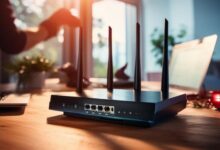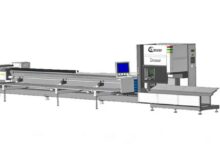From BTUs to Energy Efficiency: Everything You Need to Know About Buying an Air Conditioner

A reliable air conditioner becomes necessary with rising temperatures. However, the process of choosing the right one can be daunting, with a plethora of options available. This article discusses the key aspects of buying an air conditioner, from understanding BTUs to evaluating energy efficiency.
Understanding BTUs: The Basics of Air Conditioning Power
BTU, or British Thermal Unit, is a standard measure of heat. When it comes to buying air conditioners near me, BTUs deserve your special attention because they show the unit’s cooling capacity. The higher the BTU rating, the larger the space an air conditioner can cool. For instance, a small bedroom might require an air conditioner with 5,000 BTUs, while a larger living room could need 12,000 BTUs or more.
It’s crucial to match the BTU rating to the size of the room. An undersized unit provides substandard cooling, which will increase energy consumption and wear and tear. An oversized one cools the room too quickly without adequately dehumidifying the air, resulting in a clammy atmosphere.
Types of Air Conditioners: Choosing the Right Fit for Your Space
ACs come in various types, each suited to different needs and spaces:
Window Air Conditioners: These cool single rooms are quite good. They are affordable and have an easy installation process. However, they can obstruct the view from the window and may not be suitable for homes without standard-sized windows.
Portable Air Conditioners: These offer flexibility as they can be moved from room to room. They require a venting kit to exhaust hot air through a window or wall. While convenient, they tend to be noisier and less efficient than window units.
Split-System Air Conditioners: Consisting of an indoor and an outdoor unit, these systems are more efficient and quieter. They are ideal for cooling individual rooms or zones in a house. Installation is more complex and costly but worth it for the enhanced performance.
Central Air Conditioning Systems: These are best for cooling an entire house. They provide uniform cooling through a network of ducts. While the initial installation cost is high, they offer superior efficiency and comfort.
Ductless Mini-Split Systems: Similar to split systems but without ductwork, these are ideal for older homes or additions where installing ducts is impractical.
Energy Efficiency Ratings: What Do They Mean?
Efficient units not only save money on utility bills but also reduce environmental impact. Here are key ratings to consider:
EER (Energy Efficiency Ratio): This measures the cooling output divided by energy consumption. A higher EER indicates a more efficient unit.
SEER (Seasonal Energy Efficiency Ratio): This rating considers the seasonal variation in temperature and energy consumption over a cooling season. A higher SEER signifies better energy efficiency.
Energy Star Certification: Look for units with this label. It suggests the product has met the energy efficiency Environmental Protection Agency (EPA) guidelines.
Key Features to Look for
When shopping for an air conditioner, consider the following features to enhance comfort and convenience:
Programmable Thermostats: These let you set the temperature to adjust automatically, saving energy when you’re not home.
Variable Speed Compressors: These adjust the cooling output to match the cooling needs, improving efficiency and comfort.
Wi-Fi Connectivity: Smart air conditioners can be controlled remotely via smartphone apps, offering convenience and better energy management.
Sleep Mode: This feature adjusts the temperature gradually to ensure a comfortable sleep environment while saving energy.
Dehumidification: Units with this feature can remove excess moisture from the air, improving comfort and indoor air quality.
Read also: Mastering Air Conditioning for Your Home: A Comprehensive Guide
Maintenance and Care: Keeping Your AC Running Smoothly
Here are some maintenance tips:
Clean or Replace Filters: Dirty filters reduce efficiency and air quality. Clean or replace them monthly during the cooling season.
Check the Thermostat: Ensure it is functioning correctly and set to the right temperature.
Clean the Coils: Dirt and debris reduce efficiency. Clean them annually or as needed.
Inspect the Condensate Drain: Ensure the drain is clear to prevent water damage and humidity issues.
Schedule Professional Maintenance: An annual check-up is a good idea as they can identify potential issues before they worsen..
Smart Air Conditioners: Integrating Technology for Better Comfort
Smart air conditioners offer advanced features that enhance convenience and efficiency. Wi-Fi connectivity lets you control your unit remotely, monitor energy usage, and set schedules. Some models are compatible with voice assistants, allowing for hands-free operation. These features not only improve comfort but also help in managing energy consumption more effectively.
By understanding these key aspects, you can look for air conditioners near mewith confidence. Remember to consider the size of your space, the type of unit, energy efficiency, and additional features to find the best air conditioner for your needs. The right choice helps you enjoy a cool and comfortable environment all summer long.








